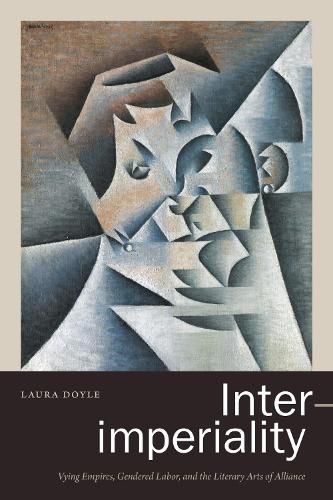Readings Newsletter
Become a Readings Member to make your shopping experience even easier.
Sign in or sign up for free!
You’re not far away from qualifying for FREE standard shipping within Australia
You’ve qualified for FREE standard shipping within Australia
The cart is loading…






In Inter-imperiality Laura Doyle theorizes the co-emergence of empires, institutions, language regimes, stratified economies, and literary cultures over the longue duree. Weaving together feminist, decolonial, and dialectical theory, she shows how inter-imperial competition has generated a systemic stratification of gendered, racialized labor, while literary and other arts have helped both to constitute and to challenge this world order. To study literature is therefore, Doyle argues, to attend to world-historical processes of imaginative and material co-formation as they have unfolded through successive eras of vying empires. It is also to understand oral, performed, and written literatures as power-transforming resources for the present and future. To make this case, Doyle analyzes imperial-economic processes across centuries and continents in tandem with inter-imperially entangled literatures, from A Thousand and One Nights to recent Caribbean fiction. Her trenchant interdisciplinary method reveals the structural centrality of imaginative literature in the politics and possibilities of earthly life.
$9.00 standard shipping within Australia
FREE standard shipping within Australia for orders over $100.00
Express & International shipping calculated at checkout
Stock availability can be subject to change without notice. We recommend calling the shop or contacting our online team to check availability of low stock items. Please see our Shopping Online page for more details.
In Inter-imperiality Laura Doyle theorizes the co-emergence of empires, institutions, language regimes, stratified economies, and literary cultures over the longue duree. Weaving together feminist, decolonial, and dialectical theory, she shows how inter-imperial competition has generated a systemic stratification of gendered, racialized labor, while literary and other arts have helped both to constitute and to challenge this world order. To study literature is therefore, Doyle argues, to attend to world-historical processes of imaginative and material co-formation as they have unfolded through successive eras of vying empires. It is also to understand oral, performed, and written literatures as power-transforming resources for the present and future. To make this case, Doyle analyzes imperial-economic processes across centuries and continents in tandem with inter-imperially entangled literatures, from A Thousand and One Nights to recent Caribbean fiction. Her trenchant interdisciplinary method reveals the structural centrality of imaginative literature in the politics and possibilities of earthly life.